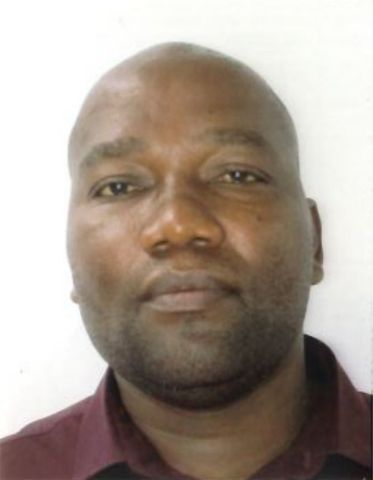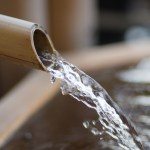SPONSORED CONTENT
Is Israeli-Palestine conflict exposing cracks in South Africa’s non-alignment posture?

South Africa remains decisive in its adherence to non-alignment posture. Its intervention in the Russia-Ukraine conflict confirmed a neutral stance.
South Africa refuses to be drawn into a situation where it picks a side in the conflict. Rather, it calls for a negotiated solution. Reaffirming this position, South Africa’s President Cyril Ramaphosa led the delegation of African heads of states to Kyiv (Ukraine) and Moscow (Russia) which sought to persuade both countries to enter negotiation. This came after South Africa was criticised by the West. The West felt that South Africa appears to be siding with Russia. According to the South African government, the visit was an attempt to set the record straight regarding the neutral stance – as compared to the US, NATO and its Western allies which selectively supplied Ukraine with weapons and imposed economic sanctions on Russia – clearly siding with Ukraine in the conflict. However, Russia and Ukraine assisted the ANC as a former liberation movement in terms of training and housing its freedom fighters.
More recently, South Africa’s non-alignment posture has come under scrutiny in the Israeli-Palestine conflict. The ANC-led government responded differently. It supports Palestine and criticises acts of criminality unleashed by Israeli government which epitomise genocide or apartheid regime. Where does this put the non-alignment posture? The clear-cut answer is that the non-alignment posture is put under siege.
Origins of non-alignment posture
South Africa is a member of the Non-Aligned Movement (NAM). NAM originated during the decolonisation process in September 1961. Its primary objective was to oppose imperialism, colonialism, apartheid, and racism. NAM members have always refused to be associated with the East and West divide (or a bipolar world) which dominated during the Cold War era. Instead, they have always pledged solidarity with the Third World countries. Although the allegiances (or loyalties) of members might have shifted in opposite directions over the years given the dynamic nature of global politics, NAM has remained steadfast even in response to North-South current agenda. The members agree on the quest for UN reforms and call for dialogue (or negotiated settlement) as a conflict resolution strategy to bring about peace. South Africa’s foreign policy supports the NAM position and condemns crime against humanity. The foreign policy places emphasis on dialogue to achieve peace and security, respect for human rights, rule of law and democracy. To this end, President Ramaphosa poignantly cited the founding principles of the 1955 Freedom Charter that “South Africa shall be a fully independent state which respects the rights and the sovereignty of all nations; South Africa shall strive to maintain world peace and the settlement of all international disputes by negotiation – not war”.
Parliamentary debate about closure of Israeli Embassy signals a twist in South Africa’s non-alignment posture?
The National Assembly debated a motion that was brought forward by the EFF Leader, Julius Malema regarding the possible closure of the Israeli Embassy in Pretoria, which signalled the fall out in diplomatic relations between two countries. On 21 November 2023, 248 members of parliament voted in favour of the closure of the Israel Embassy, while 91 members voted against. The 91 members largely consisted of the DA members and other opposition parties. Does this signal a twist in non-alignment posture compared to the Russia-Ukraine conflict where South Africa never picked a side? Does this imply that South Africa-Israel relations are collapsing? Prior to the parliamentary debate, the Democratic Alliance (DA) demoted a member (Ghaleb Cachalia, Spokesperson on Public Enterprises) who went to the media unauthorised and criticised the actions of Israeli in Gaza. This confirms the DA’s unwavering support of the Israeli, US, and other Western allies. Ghaleb defied the DA’s position in relation to the conflict.
Closing an Israeli embassy shows that the ANC-led government aligns with Palestine and wants to improve diplomatic relations. It also shows that it does not care about risking its own non-alignment posture – which might weaken its bilateral relations with the US – and in the long run, risk being thrown out of African Growth and Opportunity Act (AGOA). Strategically, AGOA is important as it gives African countries access to duty-free US markets. Conversely, Chris Coons (US Senator) and Jim Risch (Republican Senator) have stressed the need for the US to tighten eligibility criteria to AGOA due to South Africa’s actions. They call for the US government to immediately review the eligibility criteria and not rule out the possibility of cutting ties with states that do not align with the US’s national interests on various strategic economic and political issues. Not aligning with US national interests means you are a threat to its national security. Such understanding confirms that the US does not like opposing views and can resort to bullying tactics to force countries to toe the line.
Not worrying about the US means that South Africa is bold at international level. Domestically, being bold might lengthen the economic crisis due to public sector corruption and slow recovery from the COVID-19 pandemic.
South Africa compromises non-alignment posture in response to Israeli-Palestine conflict: Evidence of Cracks within ANC-led government on matters of national interest?
The results of the parliamentary debate illustrate divisions and ideological differences within the ANC-led government in terms of what constitutes national interest and how it is understood. Bringing the motion to parliament, Julius Malema argued that Israeli actions are illegal, and scores of deaths increased. The Israeli government contravened international law. The ANC supported the EFF in labelling the actions as illegal. In retrospect, the ANC sympathises with Palestine because Israeli actions epitomises apartheid as indicated by EEF leader. South Africa approached the International Criminal Court (ICC), and International Court of Justice (ICJ) to have Israel declared ‘an apartheid state’. Therefore, the pain and suffering that Palestinians are enduring is reminiscent of what the ANC and other liberation movements went through before 1994. In this context, the ANC and EFF are morally obligated to support the Palestine government in search of self-determination. However, the actions might be interpreted as a stark contrast to the non-alignment posture.
The way forward
While opposition parties would never agree with the ruling party on pertinent issues, the ANC-led government cannot afford to deviate from its non-alignment stance. The stance is premised on the country’s internationally acclaimed Constitution. The stance allows the South African government to enter the fray as a neutral player who can be trusted by both sides. A change might be seen as an expression of South Africa’s unwillingness to be bullied by the US especially on matters relating to national interest. While this can be interpreted as a decisive move, the South African government needs to strike a delicate balance in terms of protecting its national security, safeguarding national interest, and not risk losing key trading partners, and economic growth opportunities created by AGOA. Israeli-Palestine conflict requires one to navigate carefully and be wary of the unintended consequences this might have on multilateral relations in the long run. DM
Author: Professor Mbekezeli Comfort Mkhize, Associate Professor in International and Diplomacy Studies, UNISA


















 Become an Insider
Become an Insider